Steph W. from SEOPressor


...help you check your website and tell you exactly how to rank higher?


93
score %
SEO Score

Found us from search engine?
We rank high, you can too.
SEOPressor helps you to optimize your on-page SEO for higher & improved search ranking.
By winniewong on May 6, 2019
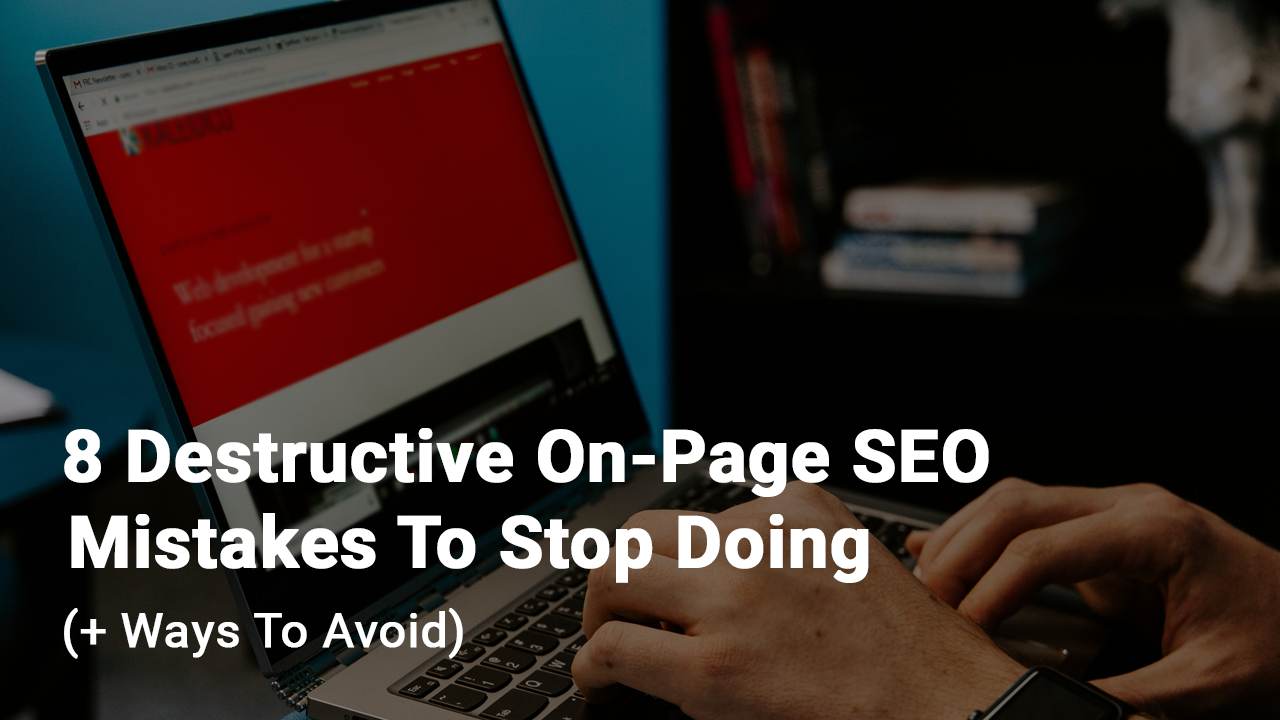
Search engine optimization (SEO) is a good, long-term investment that needs care and precision. Those of you who have been in this field for a long time would know that SEO can be complicated and very technical.
Despite all the do’s and don’ts in the SEO industry, one thing you should know is this: If your website is NOT search engine optimized and does NOT have a good SEO basis – putting a huge amount of effort to get it to rank is pretty much useless.
When doing SEO, there are 2 major areas that play a big role: on-page SEO and off page SEO. To get started, “on page” refers to anything happening on your website, under your direct control. “Off page”, on the other hand, covers actions that are carried outside of your own website which may be out of your control.
Though both types of SEO are equally important in search engine optimization, I will be focusing mainly on on-page SEO as of today. That is because you can’t get off-page SEO without having on-page SEO first. So, let’s look in detail the 8 destructive on-page SEO mistakes that you should stop doing immediately.
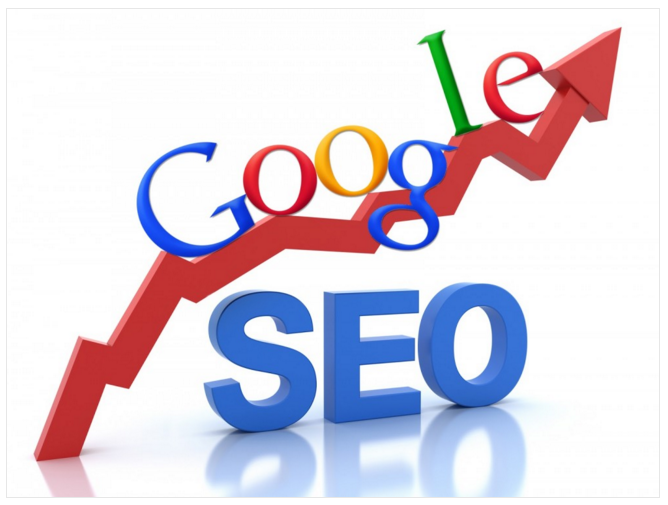
“When was the last time you made an appointment to a check-up at the dentist?”
Chances are it’s been more than a year (Kudos to those of you who get them checked regularly). Now, let’s apply that same concept to another thing you should also take great care of: your website’s on-page SEO.
“When was the last time you performed a full SEO check on your website or blog?”
You aren’t the only one to answer “never” or “only once”. After all, it isn’t easy to keep up with Google’s ever-changing demands and algorithms, right? Well, that shouldn’t be an excuse to not keep up with SEO.
One of the biggest mistakes webmasters make would be creating a website, not updating the website or ignoring it completely. If you’re ignoring even the most basic SEO, you are going to lose out on; leads, traffic, sales, and ranks. All of it determines the success of your website.
A research from Borrell Associates stated that SEO-related spending will be worth $80 billion by 2020. Many businesses these days seems to have realized the huge benefit that SEO can bring. Still, you’d be surprised even the smartest, most creative, technical minds tend to overlook the basics of on-page SEO and end up shooting themselves in their foot because of it.
Avoid This By:
Start checking on your website’s SEO and optimize places that need extra care. Remember to do it as often as you can and get yourself equipped with the latest Google updates. As you do it right, you will see yourself reap the benefits of your hard work.
I’m sure you’re now familiar with the term keyword research as you will have seen them appearing everywhere in SEO related blogs. In fact, a big part of whether or not your content will rank and drive traffic depends on the keywords you select.

Gone are the days where you could spam your website with the same keywords repeatedly to get ranked. The search engine has evolved in ways that now prioritizes the human being. This is where Latent Semantic Indexing (LSI) comes into play.
Think of it as a list of related keywords under the main keyword’s umbrella. And no they are not synonyms, to clear things up. By adding LSI Keywords, you are also helping Google to make sense of what your content is about and therefore directing searchers to it efficiently.
It’s best to be as specific as possible when targeting your main keyword which can be achieved with long-tail keywords. Take this blog post, for instance, the primary target keyword phrase is obviously “on-page SEO”, but I am also targeting many other long-tail variations.
Let’s look at another example. A digital marketing agency would not want to go for the keywords “digital marketing agency” in the beginning. It would be easier to rank for “digital marketing agency for Santa Barbara realtors” – keywords that would give you instant results.
As you progress, you can optimize for more competitive keywords after your website grows and gains authority.
Avoid This By:
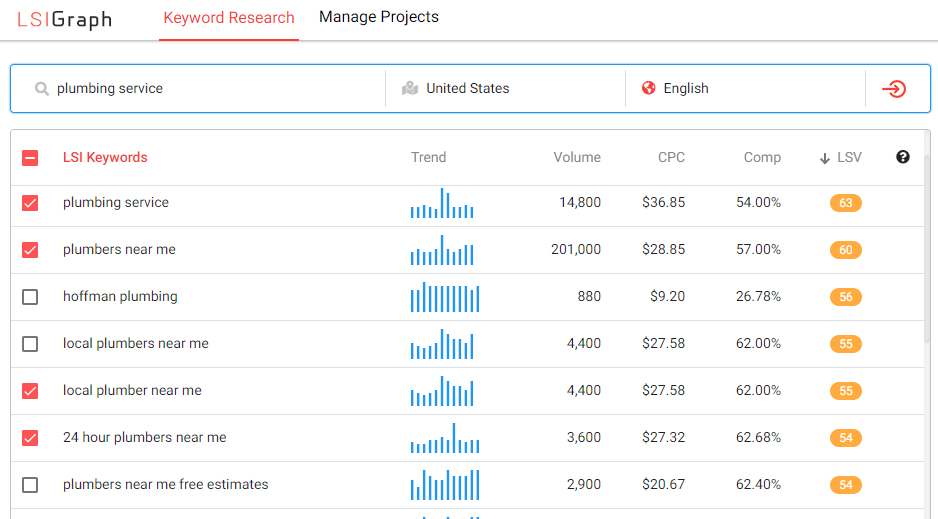
Using LSIGraph. It is an easy-to-use tool that gives you hundreds of LSI keywords within a second that you can sprinkle in your content. LSIGraph is designed to help you solve your keyword research problems that results in this tool being the best choice. As a digital marketer, having a tool like this gives me access to the secret vault of valuable keywords. It is also a great tool to rank and rank high when done right.
You can also opt to avoid this by using BiQ.
This SEO suite not only helps you in keyword research, but it also provides you with an all-access to content intelligence, site intelligence, markup intelligence, markup intelligence, rank intelligence, link intelligence, and other management features. Don’t need all of them? No worries, BiQ enables you to pay only for what you use and don’t pay for what you don’t use. As a digital marketer, using a tool that gives cost control back to us makes this a comprehensive approach to my SEO! Definitely give this a try.
LiveKeywords (free alternative to Keywords Everywhere) – if you are doing SEO content, this will be the best extension for your SEO keyword research. It shows keyword suggestions together with their search volume, cost-per-click, and competition, all for free and right from your results page!

Basically, by having any analytics present on the website tracking the data, you’re taking a big step forward in refraining from the on-page SEO mistakes people are making. If you don’t do regular website performance trackings to know what is working and not, you won’t be able to provide your visitors with the best interests or understanding user intent.
Through all these years as a digital marketer, I am an advocate of Google Analytics (GA). It is one of the best free software tracking packages. By using this powerful statistics program, I am able to track the number of visitors to my site, page views, the search keywords they use to find my site, the time spent on my site, goal conversion and so much more.
Having this important information in hand allows me to take certain, specific, steps on my website so that it answers to the visitors’ needs.
Let’s take time on site as an example; if the time spent on my blog is only 21 seconds, that means the blog has failed to give what the visitors are there for. There can be various reasons as to why the bounce rate is high (UX, load speed, etc) but with this piece of information, I am able to understand what’s driving my success or holding me back.
Avoid This By:
Setting up your Google Analytics account today. I understand that GA can be overwhelming if you are new to it but it’s actually pretty simple once you know which data to focus on. You can read more on how you can install GA properly here.


Whenever someone enters a query in Google, the results that are returned have a title and meta description. They may often time be perceived as not so important when it comes to website ranking but think about it this way:
“Are you going to click on the title that does not contain your targeted keyword you entered in the search bar?” or “What about a description that does not briefly answer your search intent?”
You probably won’t.
It’s pretty simple, people are going to click on titles and meta descriptions that are closely related to what they are searching for. It is your only last resort to convince the user to click on your article instead of others.
Title tags should be unique for every page. In search results, search engines will highlight your keyword phrases if a user has searched for those terms. Meta descriptions should also include keywords wisely but more importantly, they should include an attractive paragraph of not more than 160 words which users would want to click on. Optimizing them improves click-through rate and indirectly improves your ranking.
Avoid This By:
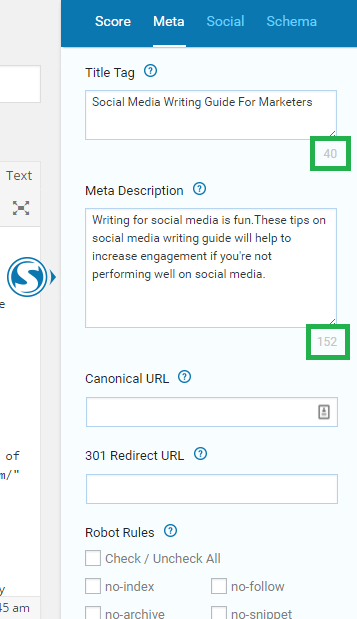
Including your target keywords and LSI keywords, preferably upfront in both title tags and meta descriptions. Always have the mindset of crafting human-focused, catchy titles and descriptions rather than “technically correct” ones. To ease your job, set up META Settings with SEOPressor Connect and gain maximum on-page SEO control.
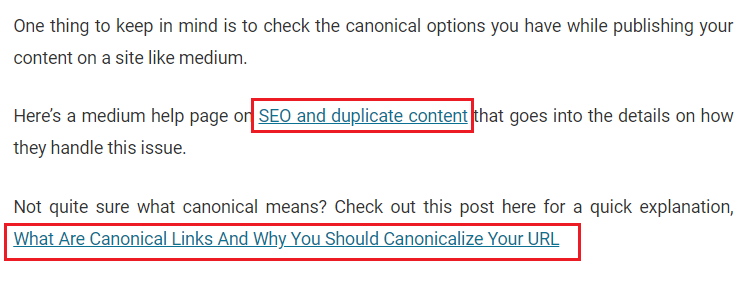
One of the main driving factors behind search rankings is links. While people believe that backlinks are the recipe for search success, I’m here to tell you that you should not ignore linking internally on your own sites too.
Internal links are important as they:
When you miss out on doing internal links, you miss out on all these benefits which your website will NOT thank you for.
Internal linking of a website is like the foundation in a construction. The stronger the base you build, the greater the on-page SEO your website will have. Building internal link has to begin from the start; the earlier the better. This is because when you have more pages and content piled up as time goes by, it becomes even more difficult to do internal linking.
Say you are running your online business in the fifth year now, can you possibly remember all the hundreds or thousands of pages you created previously? Very unlikely, right?
Well, this very issue is exactly what one tool will be solving. And it is by…
Avoid This By:
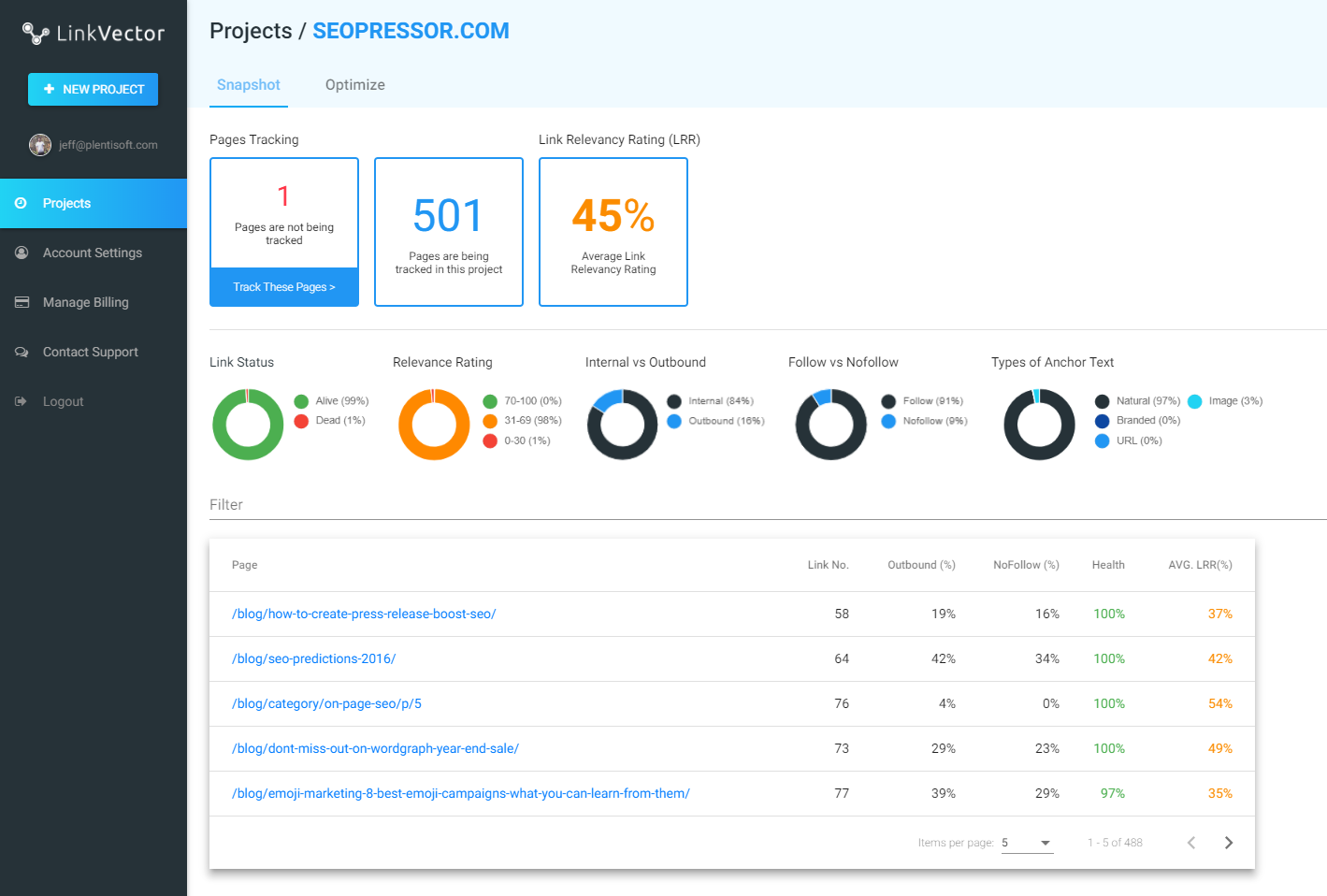
Using LinkVector. Link Vector is able to tell you how well your internal link profile is, and it will guide you through a step by step optimization process to build a solid internal link foundation for on-page SEO. You can now ensure that all your pages are linked from somewhere relevant in your site, that can be reached within a few clicks.
Waiting 45 minutes for your food to arrive,
Waiting 1.5 hours for your friends to arrive,
Waiting for a 4-hour flight delay,
Waiting 3 minutes for a site to load…
Having to face all these doesn’t feel good, right?

If you feel annoyed about having to wait for your food to arrive, then it is the same when it comes to a slow site load speed. Being in a digitally-equipped era, people expect things to be fast and immediate. Half of us don’t even wait 8 seconds for a page to load!
Google even confessed it’s love for speed. They’re on a mission to make sure the Internet is speedy, easily accessible and useful. That is to say, sites that are slow will be penalized by not letting them rank high no matter how good the content is.
As soon as users choose to click on a site, the first impression you give them is the website speed. Your visitors make an instant judgement about you and your business; if it loads fast we relate it to efficiency, trust, and confidence. On the other hand, a slow website makes us think it’s unsafe and insecure.
And it’s really difficult to turn around that negative first impression. What’s worse is, you don’t get a second chance when it comes to user experience as nearly 80% of your potential audience will not be coming back. This is one on-page SEO mistake you wished you’ll never be doing.
Avoid This By:
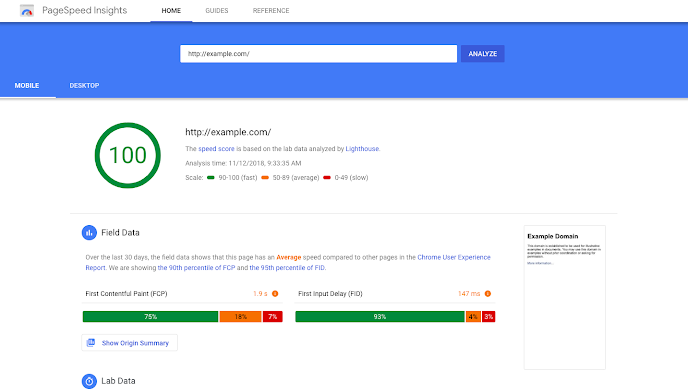
Measuring your server speed using Google’s Page Speed Insights tool. This tool analyzes your page and gives you some optimization suggestions. I would also suggest aiming for a site load speed of 2 seconds or under as a general rule.
User intent SEO has been the talk of the town ever since search engines began providing users with results that are relevant to the search query. Under Google’s stewardship, understanding user intent became the single most important attribute for the evolution of the search engine.
If you want your business to be discovered by users on the web, then your content needs to be optimized for user intent so that their needs are met. As you might know, there are different types of search queries:
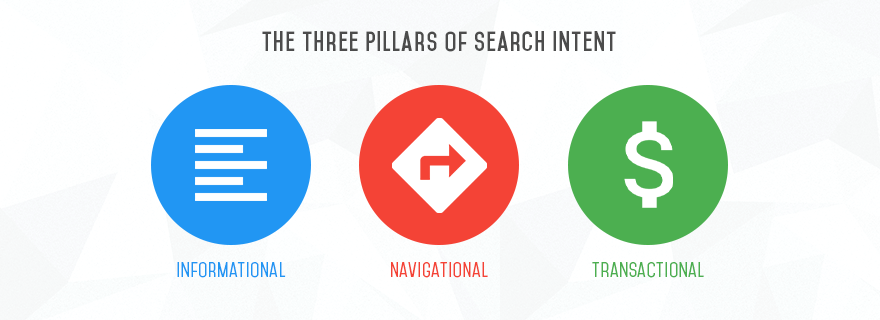
The basic idea is that everyone who performs an online search has a specific intent. They want something.
When you pay attention to the type of search queries, understanding user intent, and their buying cycle – you wind up with an amazing landing page experience that speaks to no one. And without understanding search intent, you can never structure an ad or landing page experience that will speak to a potential customer’s needs.
The bottom line is, if you don’t optimize for user intent, you’ll end up losing out to competitors who do. This is not only true from an on-page SEO perspective but certainly from a financial and business perspective too.
Avoid This By:
Understanding user intent with buyer personas and their search behavior. To achieve these, you’ll want to collect important information from website analytics, surveys, and form that fills in your website. The more information, the better. By taking the time to invest in buyer persona research and understanding the different types of search behavior, you’ll be able to enhance the relevancy of your website.
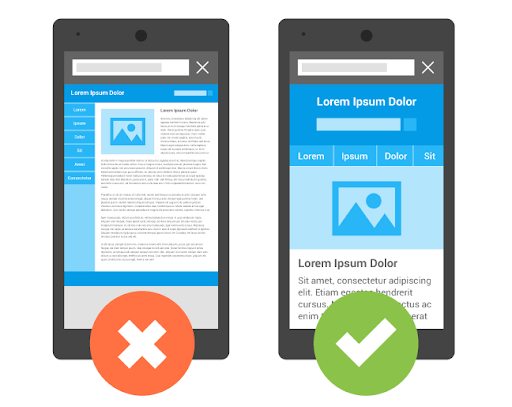
Since 2015, Google officially started rewarding the search rank of mobile-friendly sites and penalizing sites that were not mobile-friendly.
A study by Blue Corona found that sites that did not switch to mobile-friendly platforms were hit with a 50% traffic reduction penalty. Due to this penalty, it resulted in fewer people seeing and clicking on the affected site because Google dropped its SEO rankings.
All these are done because Google vows to protect its users from having a bad browsing experience on websites. And in order to protect your position within Google’s search result rankings, many businesses will need to make SEO adjustments.
So what happens when your site is not mobile-friendly?
The answer is simple: It won’t pass Google’s test. Then again, making a site mobile-friendly is not just about passing the test or making it responsive. Even with a good mobile design, if the site is slow, the browsing experience will still be bad and users will eventually leave your site (we talked about this in #6).
Start today. When you are considering your next development or design change, base majority of your discussions around the mobile experience. Remember, a bad mobile experience will soon impact your rankings in mobile search.
Avoid This By:
In order to stand the chance to compete on page one of Google, you need to shift your focus to your mobile compatibility and experience – now. Check if your site meets Google’s mobile-friendly criteria with the Mobile-Friendly Test. Even better, you can find mobile usability issues across your entire site with the recently launched mobile usability reports in Google Webmaster Tools.
We all know that SEO is not a one-time effort, but it is an evergreen practice every online marketer and business owners shall do consistently, and strategically. In addition to that, all on-page SEO mistakes should stop now.
By avoiding these deadly mistakes, Google will reward you in the best way possible. Implement the tips I have provided in this blog, and you will surely notice some level of improvement in your SERPs.
Let’s have a quick rundown on the 8 destructive on-page SEO mistakes that you should avoid doing:
Do you have other on-page SEO mistakes you’ve encountered and like to share with our fellow marketers here? Feel free to comment down below!
Updated: 29 June 2025


Save thousands of dollars (it’s 100x cheaper)

Zero risk of Google penalty (it’s Google-approved)

Boost your rankings (proven by case studies)
Rank High With This Link Strategy
Precise, Simplified, Fast Internal Linking.
